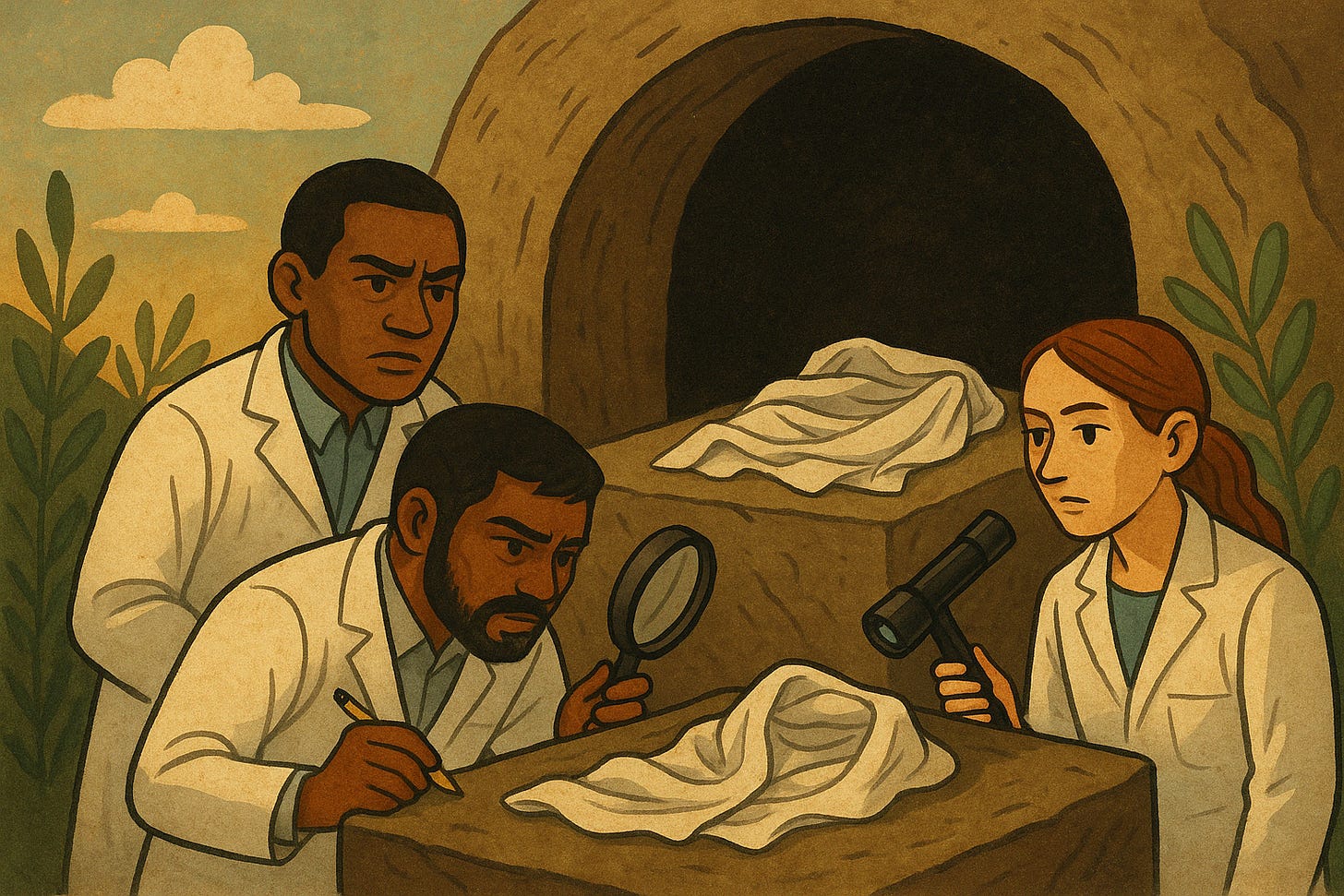I work for BioLogos — the nonprofit organization founded by Francis Collins to show that the findings of modern science don’t have to be in competition with faith commitments. We’re not a scientific organization in the sense that our office has a laboratory where professional scientists in white coats are performing experiments. But I like to say we’re science-y. We take science seriously.
This time of year on the church calendar, we’re often charged with not taking science seriously. The defining event of Christian faith is the resurrection of Jesus that we celebrate at Easter. How does that fit with our scientific view of things?
Fair question.
I host most of the episodes of the BioLogos podcast, “Language of God.” Usually these episodes consist of me interviewing someone else, asking the questions and trying to draw out of them something interesting about science and faith. Other times the producer, Colin, and I co-host a narrative episode that weaves interview excerpts from lots of people into a story we tell. But every so often, I deliver a monologue for one of our podcast episodes.
I did this last Christmas, saying it was OK not to feel merry. I heard from lots of people saying that named what they were feeling too. I decided to extend my series of monologues to the other big holiday on the church calendar. Today we released an episode called “Science and the Resurrection Accounts” in which I discuss (with myself) whether science-y folks like us should be troubled by the New Testament’s claims that Jesus resurrected (and its claims that we might resurrect too some day in the future).
You can find the 30-minute episode on Apple Podcasts here, or Spotify here, or on the BioLogos website here. Technically, it’s not just me giving a long speech, since we recruited four people to read the Gospel accounts of the resurrection (including Colin’s six-year-old son). I admit that these are kind of strange and don’t entirely agree with each other in all the details. But if they were testimonies from witnesses, I think you’d most reasonably conclude that eye-witness testimonies aren’t infallible… but it sure seems that something happened there at the tomb. Namely, Jesus’s body wasn’t there.
From there, the episode gets pretty wonky in the philosophy of science sense. What we have with these claims of resurrection is essentially a piece of anomalous evidence to the well-confirmed scientific conclusion that when people die, they stay dead. The question becomes: What is the science-y way to deal with anomalous evidence? And the answer to that is: there are many ways.
So I tell some stories from the history of science about the planet Neptune and the planet Vulcan. And I wade into thought experiments about the relationship of past evidence to future outcomes. I’m pretty sure this episode isn’t going to set any records for downloads. But there may be a few people who find it interesting or helpful.
Don’t expect that I’m “proving scientifically” that the resurrection happened. What I aim for instead is to counter the claims that science has proved that the resurrection couldn’t happen. In other words, we are not flouting some hard and fast irrefutably established scientific principles by saying Jesus resurrected from the dead. In other, other words: I can keep my job.


Glad I found other people who’re interested in the same things I am! I will have to check out your organization - it’s also my belief that science and faith need not be perceived as incompatible, and I’m doing my little bit here on the ‘Stack to try and show it.
All the best to you, and looking forward to checking out more of your work in the future!